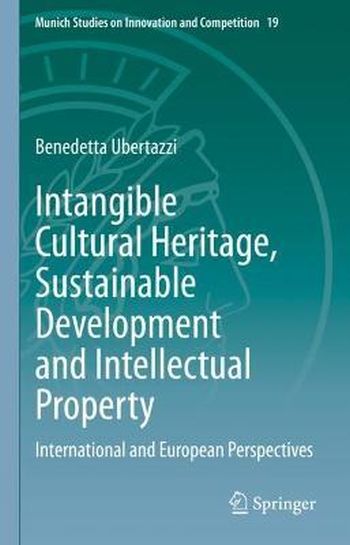
This book critically analyses the relationships between intangible cultural heritage (ICH), sustainable development and intellectual property rights (IPRs). The author argues that although the use of IPRs to safeguard ICH presents challenges and has impeded sustainable development in some cases, the adoption of these rights on ICH also presents opportunities and, fundamentally, is not contrary to the spirit of the UNESCO Convention for the Safeguarding of the Intangible Cultural Heritage (UNESCO 2003 Convention). The adoption of IPRs on ICH can form an important part of the development of sustainable safeguarding plans capable of benefitting the communities, groups and individuals (CGIs) that create, maintain and transmit such heritage. The book provides a nuanced analysis of the relationship between intellectual property (IP) law and ICH as well as examining the role of IPRs in safeguarding ICH through the lens of sustainable development. It analyses the relationship between IP law and ICH from environmental, social and economic perspectives. These perspectives allow a thorough evaluation of both the positive effects and potential pitfalls of adopting IPRs to safeguard ICH. The book addresses deeper structural matters that refer back to the safeguarding of social and environmental processes underlying ICH.